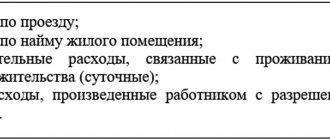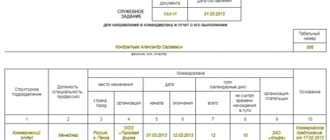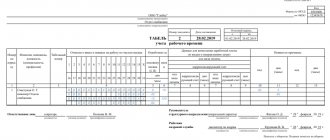Travel expenses. Daily allowance. Definition
So, before talking about the amount of payments, you need to decide what they are. The concept of travel expenses includes daily allowances paid for each day an employee works in another location, as well as travel and accommodation costs. Additionally, other expenses that the employer considers necessary to allow may be paid.
Are daily allowances subject to insurance premiums?
What are daily allowances? In simple terms, this is money paid to an employee to perform his work and allow him to live in the area to which he was sent. It should be noted that the employee is not entitled to daily allowance if he is able to return to his own place of residence, if it is deemed appropriate by the employer.
In what cases can employees qualify for daily allowance?
In the number of business trips, according to Art. 166 of the Labor Code of the Russian Federation does not include trips of employees whose work duties are carried out on the road on a permanent basis or whose work involves constant travel and movement - pilots, forwarders, drivers, couriers, conductors, etc. However, expenses associated with regular business trips , although such expenses do not fall into the category of travel expenses, the employer is obliged to reimburse, including travel expenses, field allowances, daily allowances, rental expenses for living quarters, and other expenses agreed upon with him. The amount and procedure for compensation of daily expenses in this case, as well as the list of professions, jobs and positions of such employees, are established by the management of the extra-budgetary organization, enshrining internal norms in a collective agreement, employment contract, agreement and/or local regulation.
To the above, we add that in the latter case, the very fact of payment of compensation for expenses incurred is not affected by whether systematic trips are carried out within the locality where the organization with which the employee entered into an employment contract is located or in some other locality, as it lasts whether the business trip is one day or more.
Living expenses and daily allowances are not paid in the case when the employee is sent to another organization located in the same area (city, town, etc.), since in this case the legislation logically assumes that the employee’s place of residence does not change, since he retains daily access to his place of permanent residence.
Amount of travel expenses in 2021: daily allowance
It should be noted that the legislation does not provide for specific amounts of daily allowance that must be paid to the employee. Determining their size rests with the organization itself, and therefore specific amounts are fixed in a local act or collective agreement of the company.
At the same time, however, it is important that the maximum amount of tax-free daily allowance is determined at the legislative level. So, for a business trip within the Russian Federation this amount is 700 rubles, and for foreign business trips 2,500 rubles daily. Thus, when providing an employee with daily allowance in excess of these amounts, personal income tax will have to be paid.
If changes are needed
The regulations on business trips are initially drawn up in order to avoid controversial and conflict situations between management and employees and contractors, primarily in financial and economic matters. It discusses fundamentally important points that allow you to regulate and optimize the algorithm for sending on a business trip. This is especially important if the company sends its employees there frequently.
If the Regulations no longer meet the requirements over time, or a situation has arisen that needs to be reflected there, then changes must be made to the document. Moreover, this change begins with the job description of one of the employees taking part in the travel process (its financing).
Then, based on the note, an order is issued from the manager about the need to make changes. Based on this order, a new, more appropriate Regulation is being developed. Then it is approved by a new order approving the regulations on business trips.
Thus, one organization may simultaneously have several approval orders, dated different dates and having different registration numbers. In order not to get confused in the signed documentation and to comply with document flow standards, all orders are entered into the journal of orders for the main activity in chronological order. In practice, they are guided by the latest version of the order approving the regulations on business trips.
Amount of travel allowance per day for a one-day business trip
While reading this article, the question may arise as to whether you need to pay per diem for a one-day business trip. As mentioned above, if the employee can return to his home from another location and it is recognized that this will not worsen his situation in any way, per diem will not be paid. If a business trip lasting one day takes place outside of Russia, then the employee is paid 50% of the daily allowance established by the internal regulations of the organization.
However, it is worth considering that the employee may be paid money that is not considered daily allowance, if such a possibility is provided for by the company’s rules.
Elements of an order
The document is generated in accordance with GOST R 7.0.97-2016 (which has already replaced GOST R 6.30-2003). At the top are indicated:
- If available, a trademark or emblem of the organization. They are usually available on company letterhead.
- The name of the organization whose employees are drafting the document.
- Full name of the order.
- Document Number.
- Date of.
- The place where the order was issued.
- Registration number of the paper.
The introductory part is usually followed by the main text of the order. It begins with stating words about the purpose of the publication. You can refer to the desire to create a certain procedure for sending on business trips, to optimize (document) expenses incurred during employee trips, etc. The second part of the main text of the order contains a list, which in most cases contains instructions regarding:
- Links to the Regulations on Business Travel, which must be attached to the order. The first paragraph indicates its registration number and date of compilation.
- Cancellation of the previous order approving the regulations on business trips. The second paragraph is contained in the document only if the organization previously had a Regulation and now a fresh, later version is being approved.
- The one who is tasked with bringing other employees up to date. These can be heads of departments, heads of structural divisions, as well as the entire team (if necessary and the reality of meeting the requirements). Full name and position are indicated.
- The one who is appointed responsible for carrying out the order.
- Who retains control over the implementation of all points of the official paper.
The order ends with a visa from the head of the organization. If there is such a possibility, then a stamp is placed. The order will look more impressive if it is printed on company letterhead. If this is not possible, then do not forget to indicate the details of the compiler’s organization.
Please, how can a company increase the daily allowance for a business trip?
By order.
“Commentary to the letter of the Ministry of Taxes dated February 17, 2004 N 04-2-06/127
“On the taxation of compensation payments for reimbursement of expenses related to business trips
Employees of the Russian Tax Ministry once again explained the procedure for calculating personal income tax on compensation paid to employees during their stay on business trips.
The types of “travel” compensation that are exempt from taxation are listed in paragraph 3 of Article 217 of the Tax Code. The most common ones are:
— payment of travel expenses to the place of business trip and back;
— payment of expenses associated with renting residential premises;
- daily allowance. The first two types of compensation are exempt from personal income tax in the amount of amounts actually spent, provided that the employee has submitted supporting documents to the accounting department. As for daily allowances, they are not subject to personal income tax only within the limits established by current legislation. The authors of the published letter explained that “current legislation” should be understood as regulations issued by the Government of the Russian Federation.
Daily allowance and income tax
Let us remind you that the amount of daily allowance for business trips within the country is determined by Decrees of the Government of the Russian Federation dated 02/08/2002 N 93 * (1) (for commercial structures) and dated 10/02/2002 N 729 (for budget organizations). According to these documents, daily allowances are paid to employees at the rate of 100 rubles per day.
The daily allowance for business trips abroad is established by order of the Ministry of Finance of Russia dated November 12, 2001 N 92 n* (2). The Tax Department equates this document with the current legislation, citing the fact that it was issued on the basis of Resolution of the Council of Ministers of the Russian Federation dated December 1, 1993 N 1261 “On the amount and procedure for payment of daily allowances for short-term business trips to the territory of foreign states.” Daily allowances paid in excess of the amounts specified in these documents must be subject to personal income tax.
The commented letter did not appear by chance. The fact is that both Resolution No. 93 and Order No. 92 n were initially tied to the procedure for calculating income tax. The Russian Ministry of Taxation officially announced for the first time that these same norms should be used when calculating personal income tax. All explanations that came from the ministry earlier were of a private nature. Moreover, they were quite contradictory.
For example, the position set out in letter dated December 9, 2002 N 04-1-07/1323-AP 930 was similar to today’s: daily allowance rates are determined by Decree of the Government of the Russian Federation dated February 8, 2002 N 93, and amounts paid in excess of these standards must be withhold 13 percent income tax.
Letter dated July 22, 2003 N 04-2-10/451-Yu 909 reflected a completely different point of view. Referring to Article 168 of the Labor Code, its authors indicated that daily allowance standards are established by collective agreements, orders and instructions of the organization’s leaders. The standard of 100 rubles is mandatory only for public sector employees.
In practice, such an explanation meant that employees of commercial organizations were in more favorable conditions than public sector employees. But we must not forget that personal income tax payers are citizens whose rights do not depend on where they work. And if different standards are applied, then, other things being equal, workers sent on a business trip from a private enterprise and from a budgetary institution would ultimately pay different amounts of tax. This approach is unacceptable, since it contradicts paragraph 2 of Article 3 of the Tax Code, which states that taxes cannot be discriminatory.
Per diem and other taxes
From the new letter it follows that the uniform daily allowance rate, which currently needs to be used when calculating personal income tax on the income of any employee, is 100 rubles per day. This standard also applies in other situations. As already mentioned, commercial organizations must take it into account when calculating income tax.
In addition, excess daily allowances are subject to contributions for insurance against accidents and occupational diseases (clause 10 of the Decree of the Government of the Russian Federation dated 07.07.99 N 765). Unified social tax and pension contributions do not need to be accrued on them. Expenses in excess of the standard do not reduce taxable profit, and therefore do not increase the calculation base for these payments.
Example 1
charges accident insurance premiums at a rate of 0.5 percent. In February 2004, the company manager Smirnov was on a business trip for 7 days. Returning back, he drew up an advance report, to which he attached:
— two train tickets for a total amount of 2,400 rubles. (VAT is not allocated);
— invoice and cash receipt from the hotel in the amount of 5,600 rubles. (VAT is not allocated).
By order of the head of “Grand”, the organization’s daily allowance is paid in the amount of 300 rubles. in a day. Thus, the total amount of compensation accrued to Smirnov for the business trip is:
2400 rub. + 5600 rub. + 300 rub. x 7 days = 10,100 rub.
Since travel and rental expenses are documented, only daily allowance compensation in the amount of:
(300 rub. - 100 rub.) x 7 days. = 1400 rub.
From this amount you need to calculate:
— personal income tax — 182 rubles. (RUB 1,400 x 13%);
— contributions for accident insurance — 7 rubles. (RUB 1,400 x 0.5%).
Since the amount of VAT in travel and hotel documents is not allocated, it can be written off as a decrease in profit along with the main amount of costs (letter of the Ministry of Taxes of Russia dated December 4, 2003 N 03-1-08/3527/13-AT 995)* (3). The total amount of travel expenses that reduce Grand's taxable profit for February will be equal to:
2400 rub. + 5600 rub. + 100 rub. x 7 days = 8700 rub.
Unified social tax and contributions to the Pension Fund from the excess portion of daily allowances should be accrued to organizations that exist through targeted financing or from income not subject to income tax (for example, casinos or gambling houses). This requirement is contained in the letter dated January 23, 2004 N SA-14-05/16 DSP, with which the Russian Ministry of Taxes replaced its manual on the unified social tax. The position of the developers of the “de-espesh” circular is based on the fact that paragraph 3 of Article 236 of the Tax Code applies only to income tax payers. Organizations that do not form a base for this tax can include anything in their expenses, therefore, when calculating the Unified Tax, they need to be guided by subparagraph 2 of paragraph 1 of Article 238 of the Tax Code, which states that daily allowances are exempt from taxation only within the norms.
M.L. Ruzsky, auditor
“Regulatory acts for accountants”, N 5, March 2004.”










